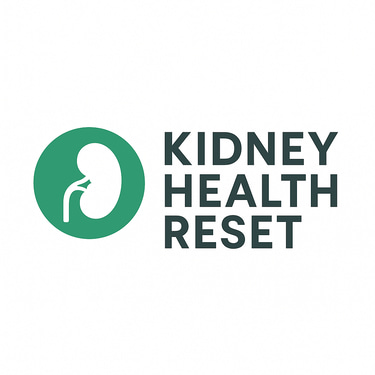Kidney Supplements: What Works & What’s a Waste?
9/6/20254 min read
Understanding Kidney Health
The kidneys are vital organs that play a crucial role in maintaining overall health by performing several essential functions. Primarily, they are responsible for filtering waste products and excess fluids from the bloodstream, thus contributing to the regulation of blood pressure, electrolyte balance, and acid-base homeostasis. Additionally, the kidneys produce hormones that aid in the production of red blood cells and support bone health. Given these critical functions, maintaining kidney health is paramount for the proper functioning of other organ systems and overall well-being.
Common kidney issues include chronic kidney disease (CKD), kidney stones, and urinary tract infections (UTIs). CKD, for example, gradually impairs kidney function and can lead to serious complications if left untreated. Kidney stones, on the other hand, form from various substances in the urine and can cause severe pain and other complications. Urinary tract infections can also impact kidney health if the infection ascends and affects the kidneys. Understanding these conditions helps underscore the importance of regular check-ups and monitoring kidney health.
Diet and lifestyle choices significantly impact kidney function. A balanced diet that is low in sodium, rich in fruits and vegetables, and adequate in hydration is essential for supporting kidney health. Conversely, consuming excessive amounts of processed foods, high-sodium diets, and inadequate hydration can contribute to kidney dysfunction. Engaging in regular physical activity, managing stress levels, and avoiding smoking also play beneficial roles in protecting these organs from damage.
In recent years, kidney supplements have garnered attention as potential aids for supporting kidney health. While some supplements may promise to enhance kidney function, it is crucial for individuals to approach these products with informed scrutiny and consult healthcare providers before incorporating them into their wellness routines.
Effective Ingredients for Kidney Health
The pursuit of kidney health has led many individuals to explore the effectiveness of various supplements. Among these, certain natural ingredients have garnered attention due to clinical research supporting their efficacy. One of the most noteworthy supplements is vitamin D, which plays a crucial role in numerous bodily functions, including kidney health. Studies have shown that maintaining adequate vitamin D levels may prevent the progression of chronic kidney disease. Physicians often recommend dosages ranging from 800 to 1000 IU daily, depending on individual needs.
Another prominent ingredient is omega-3 fatty acids, primarily found in fish oil. These fatty acids have anti-inflammatory properties, which can be particularly beneficial for kidney health. Research indicates that omega-3 supplementation may help reduce proteinuria, a common marker of kidney damage. Health professionals typically suggest a minimum daily intake of 1 gram of combined EPA and DHA for optimal kidney benefits.
Additionally, certain herbs such as dandelion root have formed part of traditional remedies aimed at promoting kidney function. Dandelion contains diuretic properties, which may assist in flushing excess fluids and toxins from the kidneys. A study published in the "Journal of Ethnopharmacology" showed that extracts of dandelion root improved kidney function in animal models, suggesting potential benefits for human applications as well. Typical doses of dandelion root range from 500 to 1500 mg, depending on its form—whether powdered, tinctured, or in tea.
In conclusion, the efficacy of kidney supplements lies in their active ingredients, evidenced by clinical research. By integrating vitamin D, omega-3 fatty acids, and dandelion root into their health routines, individuals may support and potentially improve their kidney health, contingent upon consultation with healthcare providers for personalized recommendations.
Supplements to Avoid: The Hype vs. Reality
The supplement market is rife with products that claim to support kidney health, yet many lack robust scientific evidence to back their assertions. Supplements marketed with phrases such as "renal rejuvenation" or "kidney detoxification" often catch the attention of consumers seeking to improve their kidney function. However, it is essential to approach these claims with skepticism, as few have undergone rigorous clinical trials to validate their effectiveness.
One popular category of kidney supplements includes herbal mixtures that are promoted as natural solutions for kidney support. Ingredients like cranberry extract and dandelion root are frequently showcased. While some studies suggest that these herbs may have properties that promote urinary health, their impact on overall kidney function remains inconclusive. Additionally, reliance on such supplements may lead individuals to neglect essential medical advice, thereby jeopardizing their health.
Another example includes products containing excessive doses of vitamins and minerals, which are marketed under the pretense of enhancing kidney filtration. Consuming high levels of certain nutrients, such as vitamin D or potassium, may lead to hypervitaminosis or electrolyte imbalances, posing serious health risks. These products often overstate their benefits and underplay the potential dangers associated with indiscriminate use.
Moreover, some supplements tout the ability to "flush out toxins" from the kidneys, which is misleading. The kidneys are naturally equipped to filter and eliminate waste without requiring additional assistance. This notion creates a false perception of kidney dysfunction and may instill unnecessary fear in otherwise healthy individuals.
To make informed choices, consumers should educate themselves on the ingredients and research behind any kidney supplement. Consulting with a healthcare professional is advisable before embarking on any supplementation regimen, as this can help in avoiding ineffective products that merely capitalize on the fear surrounding kidney health. In essence, it is crucial to differentiate between marketing hype and credible scientific evidence when evaluating kidney supplements.
Making Informed Choices About Kidney Supplements
When it comes to kidney health, the plethora of available supplements can be overwhelming. Making informed choices is essential for ensuring that these products are beneficial rather than detrimental. The first key step is consulting healthcare professionals. Engaging with doctors or nephrologists can provide personalized insights based on individual health conditions and medical histories. They can recommend specific supplements if needed and advise against potential interactions with any prescribed medications.
Another important factor involves scrutinizing supplement labels. Analyzing the ingredients and their respective dosages is crucial, as some products may contain unnecessary fillers or additives. Knowing what each component contributes to kidney health can help individuals differentiate between effective supplements and those that merely make false claims. Additionally, understanding the recommended serving sizes and possible side effects is vital for maintaining safety and efficacy.
It is equally important to assess one’s health needs. Not every supplement is suitable for everyone. For instance, individuals with pre-existing kidney conditions may require specific nutrients not typically found in generic formulations. Tailoring supplementation to align with one's health requirements leads to better outcomes and minimizes risks associated with inappropriate use.
The credibility of supplement brands cannot be overlooked. Researching the company’s reputation and examining customer reviews can provide insights into their efficacy and reliability. Brands that prioritize transparency—such as providing third-party testing results and clear sourcing information—tend to be more trustworthy.
Ultimately, a holistic approach to kidney health should not solely rely on supplements. A balanced diet, adequate hydration, and regular medical check-ups can significantly enhance kidney function. By integrating these practices with informed supplementation choices, individuals can support their kidney health effectively and sustainably.


